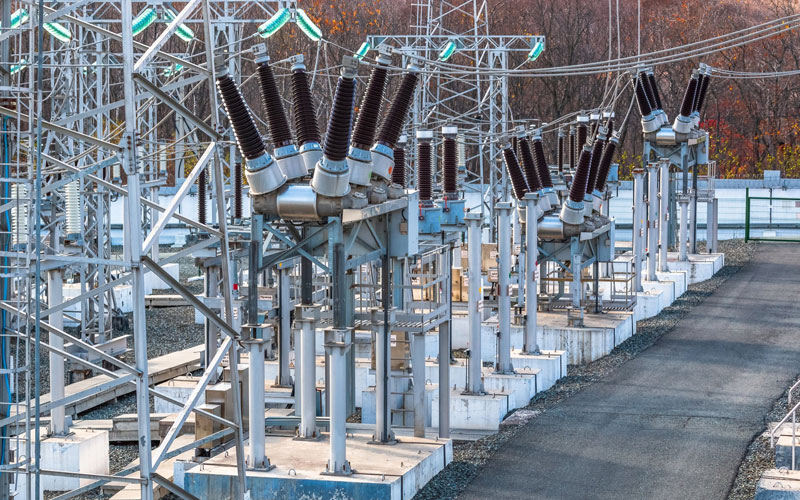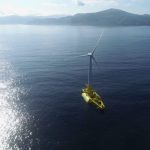Biden-Harris Administration recently announced USD 3.46 billion funding for 58 projects across 44 states to strengthen electric grid resilience and reliability across America. The announcements of up to USD 3.46 billion represent a first round of selections under the broader USD 10.5 billion GRIP Program.
Oct 18, 2023

Mr. Mitch Landrieu, White House Infrastructure Implementation Coordinator, and Ms. Jennifer M. Granholm, Secretary of Energy recently announced USD 3.46 billion for 58 projects across 44 states to strengthen electric grid resilience and reliability across America. These projects will be funded by the President’s Bipartisan Infrastructure Law and will leverage more than USD 8 billion in federal and private investments to deliver affordable, clean electricity to all Americans and ensure that communities across the nation have a reliable grid that is prepared for extreme weather worsened by the climate crisis. These transformative projects will help bring more than 35 gigawatts of new renewable energy online, invest in 400 microgrids, and maintain and create good-paying union jobs with three out of four projects partnering with the International Brotherhood of Electrical Workers (IBEW).
The Grid Resilience and Innovation Partnerships (GRIP) Program, managed by DOE’s Grid Deployment Office (GDO), funds activities to modernize the electric grid to reduce impacts of natural disasters and extreme weather worsened by climate change; increase the flexibility, efficiency, and reliability of the electric power system with a particular focus on unlocking more solar, wind, and other clean energy and reducing faults that may lead to wildfires; and improve reliability by deploying innovative approaches to electricity transmission, storage, and distribution. The announcements of up to USD 3.46 billion represent a first round of selections under the broader USD 10.5 billion GRIP Program. All of today’s selected projects have Justice40 commitments, and 86 percent either contain labor union partnerships or will involve collective bargaining agreements.
Watch: RR Kabel | Solar Cables | Solar Plant | Renewable Energy
The GRIP Program awarded projects in Georgia, Louisiana, Michigan, Pennsylvania, and Oregon focus on enhancing grid resilience, reliability, and clean energy integration. In Georgia, a USD 507 million project will improve infrastructure with battery storage, microgrids, and new transmission lines, benefiting underserved communities. Louisiana will deploy Community Resilience Hubs and enhance grid resilience to extreme weather. Michigan will build adaptive microgrids and upgrade infrastructure in disadvantaged communities. Pennsylvania projects focus on flood mitigation, real-time grid control, and clean energy integration. In Oregon projects, The Confederated Tribes of Warm Springs Reservation and Portland General Electric (PGE) will upgrade transmission capacity and connect PGE customers with the currently isolated renewable resources east of the Cascade Mountains, including those on the Warm Springs Reservation—building a bridge to up to 1,800 MW of carbon-free solar resources., including a collaboration between the Warm Springs Reservation and PGE to connect renewable resources.
The Department of Energy (DOE) announced a new multi-billion dollar investment in transmission projects across the United States. The USD 2.5 billion program aims to overcome financial hurdles associated with building new transmission lines and upgrading existing ones. This will contribute to a stronger, more reliable, and more resilient grid. One such project is the Joint Targeted Interconnection Queue Transmission Study Process and Portfolio (JTIQ) spanning Iowa, Kansas, Nebraska, North Dakota, Minnesota, Missouri, and South Dakota. This initiative will result in scalable transmission solutions, new renewable generation, lower energy costs, and enhanced community engagement and workforce development. Another noteworthy project is Wildfire Assessment and Resilience for Networks (WARN). This collaboration of 39 rural electric cooperatives in high-fire-risk areas will focus on hardening the grid to withstand wildfires. This involves deploying fire-resistant infrastructure, undergrounding lines, and upgrading overhead lines. Over 75 percent of the involved cooperatives are committed to creating good-paying jobs, minimizing environmental impact, and supporting disadvantaged communities.
Also Read: DemoSATH: Spain’s First Floating Wind Turbine Project, Starts Supplying Energy to the Spanish Grid
Ms. Jennifer M. Granholm, U.S Secretary of Energy, said, “Extreme weather events fueled by climate change will continue to strain the nation’s aging transmission systems, but President Biden’s Investing in America agenda will ensure America’s power grid can provide reliable, affordable power. The announcement represents the largest-ever direct investment in critical grid infrastructure, supporting projects that will harden systems, improve energy reliability and affordability—all while generating union jobs for highly skilled workers.”




